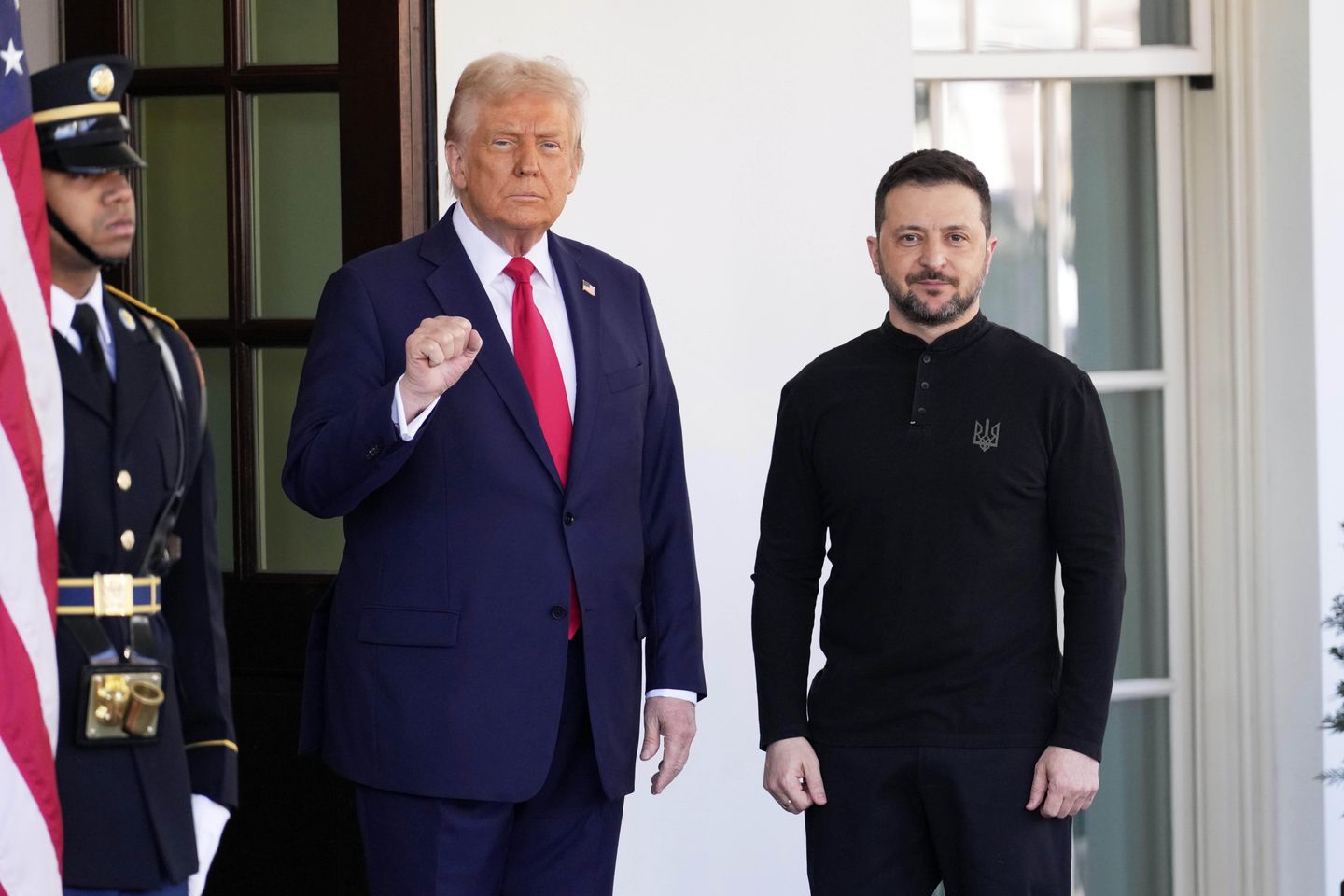
Don’t miss the full story from our staff writers, whose reportage is the basis of this article.
President Trump is advancing Ukraine peace negotiations following a three-hour summit with Russian President Vladimir Putin in Alaska last Friday. The meeting, while not producing an immediate peace deal, identified key issues for ending the three-year conflict and secured what officials describe as “epic” concessions from Mr. Putin regarding security guarantees for Ukraine.
Mr. Trump will meet with Ukrainian President Volodymyr Zelenskyy at the White House on Monday, joined by major European leaders including EU President Ursula von der Leyen, NATO Secretary General Mark Rutte, German Chancellor Friedrich Merz, French President Emmanuel Macron, and Italian Prime Minister Giorgia Meloni. The discussion will focus on providing Ukraine with Article 5-like security guarantees similar to NATO’s collective defense agreement, but administered directly by the United States and European countries rather than through NATO membership.
Steve Witkoff, Mr. Trump’s special envoy for peace missions, characterized President Putin’s acceptance of “more robust” security guarantees as a significant breakthrough. These guarantees would essentially treat an attack on Ukraine as an attack requiring collective response from the U.S. and European allies, addressing one of Ukraine’s primary motivations for seeking NATO membership.
However, significant obstacles remain. Russia continues to demand control over Donetsk and other eastern Ukrainian territories, which President Zelenskyy firmly rejects. Mr. Putin has also refused to accept a ceasefire during negotiations, insisting on moving directly to a comprehensive peace agreement. The conflict has resulted in hundreds of thousands of casualties since Russia’s 2022 full-scale invasion, building on the 2014 annexation of Crimea.
Democratic lawmakers criticized President Trump’s approach, with Sen. Chris Murphy calling the Alaska meeting “a disaster” and arguing that Mr. Putin received favorable treatment without making concrete commitments. Sen. Chris Van Hollen suggested Congress should impose new sanctions on Russia, claiming Mr. Trump was “flattered” by Mr. Putin while achieving little for Ukraine and European allies.
Trump administration officials remained optimistic, with Secretary of State Marco Rubio emphasizing the focus on achieving a comprehensive peace deal rather than a temporary ceasefire. Mr. Trump has made Ukraine peace negotiations a top priority while characterizing the conflict as primarily a European problem.
The Monday White House meeting represents a crucial next step in determining whether the Alaska summit’s preliminary agreements can translate into substantive progress toward ending the war. Mr. Zelenskyy described his post-summit phone call with Mr. Trump as “long and substantive,” indicating both sides are seriously engaged in the negotiation process despite the significant challenges ahead.
This article is written with the assistance of generative artificial intelligence based solely on Washington Times original reporting and wire services. For more information, please read our AI policy or contact Ann Wog, Managing Editor for Digital, at awog@washingtontimes.com
The Washington Times AI Ethics Newsroom Committee can be reached at aispotlight@washingtontimes.com.











